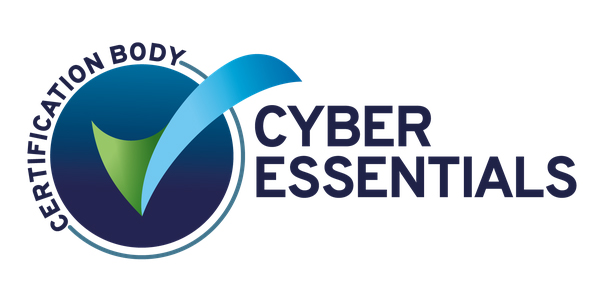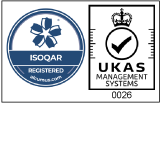Let’s face it: cyber attacks aren’t going anywhere anytime soon. If anything, they’re only getting worse…
A recent Check Point report found that global weekly cyber attacks rose 7% in Q1 2023 compared to Q1 2022, with the education and research sectors facing the highest number of breaches.
Still, that doesn’t mean you should accept defeat — quite the contrary.
There are plenty of precautions you can (and should) take to secure your networks and keep hackers at bay. Not only can these measures give your colleagues and customers peace of mind and ensure you’re complying with data protection regulations, but they can also increase productivity and prevent costly downtime.
So, we’ve broken down seven essential cyber security measures that every organisation should have in place — no matter their size or sector…
1. Design a robust cyber security strategy
Every business needs a well-thought-out cyber strategy. Without one, you’ve no way of tracking your business’ IT systems or the effectiveness of your security tools.
Typically, developing a cyber policy starts with auditing your current IT infrastructure and identifying areas for improvement. Then, you can devise a plan to manage risk and ensure your technology investments align with your strategic goals.
2. Deploy the necessary security software
Every company is considered a target for hackers — even small businesses.
In fact, SMEs are considered especially vulnerable to attacks, with the government’s April 2023 cyber security breaches survey finding that 32% of small businesses and 59% of medium enterprises had identified breaches or attacks in the past 12 months.
So, it’s crucial to implement firewalls, install anti-malware protection and enable data encryption to keep malicious actors out of your systems and minimise the spread of a successful breach.
Ensure your operating systems and software are set to update automatically at a convenient time to guarantee you have the latest security fixes and virus protection at all times.
3. Manage access to your systems and networks
Now that you’ve formed a security barrier around your business-critical systems, it’s time to ensure cyber criminals can’t get past it.
That’s where identity and access management (IAM) comes in. In a nutshell, IAM describes managing administrative privileges and access rights, preventing unwanted admittance to your systems.
Controlling access is especially important for businesses with a ‘bring your own device’ policy or that allow employees to work from home, increasing the likelihood of staff accessing resources through unsecured networks. In these cases, we’d suggest setting up a virtual private network (VPN) to facilitate safe connections.
4. Protect your passwords
Everyone knows they should use strong passwords — and change them frequently to keep cyber criminals on their toes. However, if you’re honest, when was the last time you updated yours?
All users should follow password best practices and have different secure passwords for their accounts and applications.
To simplify password security, you could implement a single sign-on (SSO) system, which allows individuals to use one set of credentials to access different applications and resources, boosting security and improving user experiences at the same time.
Alternatively, we’d suggest using multi-factor authentication (MFA): an authentication method that requires the user to provide two or more verification factors to gain access to a system.
5. Backup your data regularly
To ensure a breach doesn’t cause your operations to grind to a halt, you must regularly back up all your data — from customer profiles to private company information.
Having a backup store of your data ensures you’ll be able to recover it in the event of an attack. Otherwise, you’ll be forced to pay ransomware fines or face the mammoth task of replacing your files — and explaining to your customers that their confidential information could be in the hands of criminals.
Data can be backed up to hardware servers, cloud-based data centres or a hybrid combination of the two. In today’s digital world, we’d suggest embracing cloud storage to ensure you’ve got the scalability and technical support to keep your business-critical data secure.
6. Create a cyber-aware culture
Did you know that human error is one of the leading causes of data breaches?
Getting employees to engage with security best practices has always been challenging, and with more people working remotely away from the watchful eyes of IT departments, this task certainly isn’t getting any easier.
Still, cyber security is everyone’s responsibility. So, business leaders must provide training and create a culture of cyber awareness to ensure everyone’s doing their bit to prevent common attacks, such as phishing.
A phishing attack involves malicious actors sending fraudulent messages and emails to victims to encourage them to click on dodgy links or hand over their personally identifiable information (PII).
Either scenario could spell disaster for your business should an employee unwittingly provide an entry point for hackers, so it’s crucial not to overlook this step.
7. Develop a straightforward disaster recovery plan
Ever heard the phrase ‘failing to prepare is preparing to fail’? It’s especially relevant when it comes to protecting your business against cyber crime.
The UK’s general data protection regulations (GDPR) require businesses to report a notifiable breach within 72 hours of becoming aware of it. As a result, you need to be able to act swiftly after you uncover a potential attack.
An effective incident response plan will help you do just that — outlining the process for identifying, reporting, investigating and recovering from a cyber attack.
By providing access to an up-to-date disaster recovery framework, it’s more likely your teams will follow the correct procedure when an incident occurs — allowing you to get your systems back online as quickly as possible.
Do your business IT security systems need a little TLC? Our award-winning team of cyber security specialists is on hand to help. Discover our managed services and contact us today at info@tmtech.co.uk or 0800 988 2002 to learn more.







